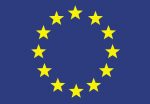Location
Italy is a member of the European Union and borders France, Switzerland, Austria and Slovenia in the north. The territory is divided into 20 regions and each region is divided into provinces, which in turn are divided into municipalities. In each region has a capital (for example, the capital of Sicily is Palermo) and other important cities called provincial capitals (for example, Catania, Trapani, Agrigento, Syracuse, Messina, Ragusa and Enna in Sicily). The northernmost point is the peak of Italy, in Trentino-Alto Adige while the southernmost point is Punta Pesce Spada, on the island of Lampedusa. The capital is Rome, while the main cities are Milan, Turin and Genoa in the north, Florence, Naples and Palermo in the centre and the southern part. The two largest islands are Sicily and Sardinia.
Climate
Italy is halfway between the North Pole and the Equator, which means climate is temperate and temperature remains stable during the course of the year. Specifically, there are 6 different climate zones:
- Alpine zone: characterized by short summers and cold winters, with abundant rainfall and snowfall events;
- Padan-Venetian area: characterised by the humidity produced by numerous rivers and lakes and the presence of fog. Winters are cold and summers hot and humid;
- Ligurian-Tyrrhenian zone: characterized by the presence of the sea that makes the winters short and mild and the summers warm but windy;
- Apennine zone: where summers are cool and dry and winters rigid and long, with heavy snowfall events;
- Mediterranean area: where the proximity to the Equator and the presence of the sea make the winters short and mild and the summers hot and dry;
- Adriatic area: characterized by harsh and rainy winters for the presence of cold winds, and hot and dry summers.
Italian Society
In Italy, the dominant religion is Christianity. Among Christians, the most numerous are Catholics, while among the religious minorities the most important are Orthodox Christians and Muslims. The official language is Italian, which is spoken all over the country, although in some regions other languages such as French, German, Slovenian, Greek, Albanian and Croatian are also spoken. Italy is a parliamentary democracy with several political parties. Legislative power lies with the Parliament while the executive power with the Government. The Judiciary exercises the judicial power. The highest office of the state is the President of the Republic. In Italian society, respect for other people, their rights and privacy is very important. Family and work are fundamental values recognised throughout the country. There are some social rules you have to observe such as do not disturbing public order, playing loud music, making noise or littering. Smoking is not allowed in restaurants, cafés, hospitals, schools and other public facilities. It is also generally forbidden to drink alcohol in public places.
Money, Currency and Banking
The euro is the only currency used in Italy (and in most other countries part of the European Union). If you have other foreign currencies at your arrival, you can easily change them into euros in the main airports or in specific offices that are located across all cities. However, you should know that the currency exchange is often expensive and not very advantageous. To receive money (e.g. from your employer), you need to open a bank account. There are many banks to choose from offering similar types of services. Remember the price of the services is not fixed, so you should first understand the differences between existing banks and then choose one based on your needs.
Public Transport Information
Legal Matters: Rights and Responsibilities
What are my rights and responsibilities?
As a resettled person in Italy, you are granted fundamental rights (United Nations Declaration of Human Rights) and the specific rights listed in the Italian Constitution (art. 2), and you also have specific responsibilities, such as the duty to work for the well-being of the society, the duty to pay taxes and to be faithful to the Republic and the Italian Constitution. Rights are based on the principle of equity and include, for example, the right to work, the right to social and health assistance, the right to travel freely in Europe without a visa for no more than 3 months (excluding Denmark and Great Britain) and to obtain a travel document equal to the passport (if your embassy in Italy does not want or cannot issue the passport), the right to bring your family members with you to Italy or to get married, the right to obtain a driving licence and to live in public housing.
Obtaining Citizenship
As a resettled person, you can obtain Italian citizenship through a procedure called “naturalisation” if you have maintained your residence in Italy for at least 5 consecutive years with a valid residence permit. In this case, you should make an online request on the website of the Ministry of Interior by submitting your birth certificate and your original criminal record. If you are unable to obtain these documents, you can write a declaration with the required information, which must be signed in the presence of a judge and at least two witnesses. It is important to know that the new law 132/2018 states that it is also necessary to have an Italian language certificate equal to level B1. Bear in mind the procedure has a cost of about 200 €.

 This website was funded by the European Union’s Asylum, Migration and Integration Fund. The content of this website represents the views of the author only and is his/her sole responsibility. The European Commission does not accept any responsibility for use that may be made of the information it contains.
This website was funded by the European Union’s Asylum, Migration and Integration Fund. The content of this website represents the views of the author only and is his/her sole responsibility. The European Commission does not accept any responsibility for use that may be made of the information it contains.


